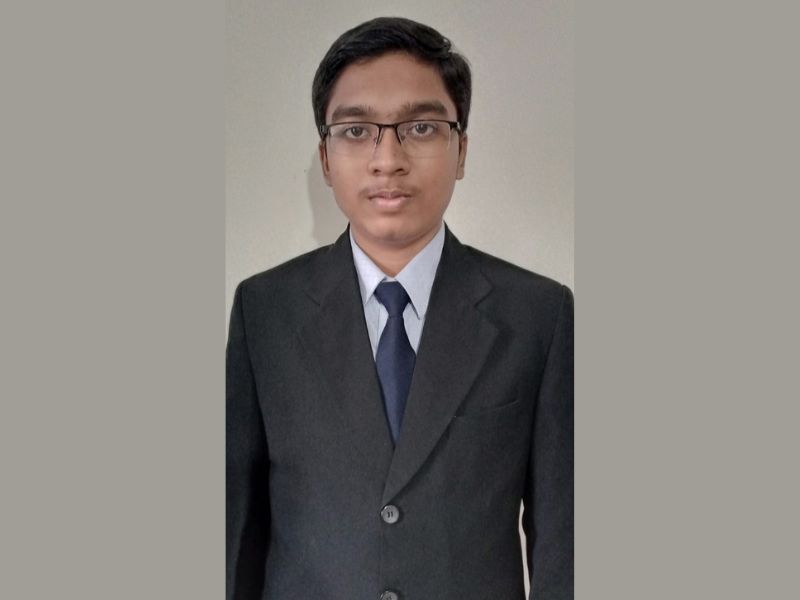– Dipta Joshi
Sonit Sisolekar, a Pune-based 15-year-old is eagerly awaiting a package being shipped by the National Aeronautics and Space Administration (NASA). Expected to arrive in October, the package contains two chip satellites called Lunasats which Sisolekar and his team – three of his classmates, will assemble and work on. Armed with magnetic, temperature, and a host of other sensors, the satellites will be dropped on the lunar surface for research purposes.
Sisolekar and his team are among the 300 teams selected worldwide to participate in NASA’s ‘Great Lunar Expedition for Everyone’ (GLEE) 2023 event which aims to popularise public interest in learning and researching the lunar surface amongst school and college students.
However, this would not be Sisolekar’s first celestial tryst. At age 12, he won the NASA CIS International competition- 2019 and had his research samples of volcanic rock powders and volcanic ash collected from India and Iran respectively sent into space (mesosphere) via NASA’s Columbia Scientific Balloon Facility. The ongoing research studies the possible role of ionising radiations in the reddening of martian soil.
Studying the lunar surface is just one of the interests of the class X student of the state board-affiliated Paradise English School. Interested in geology since his childhood, at the age of 11, he discovered two undocumented lava tubes (empty tunnels or caves formed once the molten lava has passed) during walks around his home. Since then, Sisolekar who is the country’s youngest volcanologist and planetary geologist has written several articles and presented research papers at various national and international conferences.
In March 2021 he presented his research about lunar sinuous rilles at the Lunar and Planetary Sciences Conference organised by NASA and the United States Geological Survey (USGS). The study compared lava flow channels on the moon called sinuous rilles with lava tubes on the earth. In May, he co-authored a research paper in the Journal of Geological Society of India (JGSI), about the Sylhet Traps (65 million years old lava flows) in Meghalaya.
He has also won several state and national-level medals at INSEF (Indian National Science and Engineering Fair) including one in 2018 for his research on plants responding to sound. In 2021, Sisolekar was awarded the Rashtriya Bal Puraskar (the National Children’s Award) for his scholastic research. He is also an award-winning tabla player.
The young scientist hones his interest in astronomy using a telescope he was awarded by the National Observatory of Japan for his essay on the use of telescopes for popularising astronomy in rural areas. Putting his ideas into practice, Sisolekar has started an astro-geo club to reach out to other like-minded people and spread his love for astronomy and geology. The Whatsapp club has 212 members who participate in the daily quizzes he sends out. He is planning to introduce new activities to generate more variety and interest.
Another feather in Sisolekar’s cap has been bagging the gold medal at the International Earth Science Olympiad (IESO 2022) held August 25-31 in which India put up its best-ever performance. After a rigorous selection and training process conducted by the Geological Society of India, Sisolekar was amongst the final eight school and college students representing India among the 70 global teams participating in the event.
Sisolekar and his team’s research topic for the final round was carbon sequestration using basalt rocks. Carbon sequestration is the process of capturing and storing atmospheric carbon dioxide. He also won two individual bronze medals at the event.
While most students have to give up other activities to focus on preparing for class X boards, the top ranker who is just months away from the exams scheduled for March 2023, hasn’t felt the heat so far. “I would say, I am spending relatively less time on my other activities but it’s not down significantly since I have already completed my class X syllabus. I am currently studying from class XI and class XII books,” says Sisolekar who self-studies post his school hours and tuitions.
Having set a schedule for himself that begins at 5.30 am each morning, Sisolekar allots time for his tabla practice, cycling, and preparations for any other competitive exams like the Olympiad etc. as well. Excited about the vast scope natural sciences offer, he wants to pursue his interest in geology in the future.
Also read: NASA to launch satellite developed by Tamil Nadu students
Posted in National, News



























